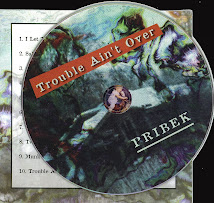The Real ‘Mommy Brain’: New Mothers Grew Bigger Brains Within Months of Giving Birth
Retrieved for Ed Purposes by Pat Darnell
Warmer feelings toward babies linked to bigger mid-brains | October 20, 2010 [SOURCE]
Motherhood, it turns out, causes a woman's brain to grow. "Motivation to nurture a baby, and the hallmark traits of motherhood, might be less of an instinctive response and more of a result of active brain building," neuroscientists Craig Kinsley, PhD, and Elizabeth Meyer, PhD, wrote in a special commentary in the source journal issue.
" ... Exploratory research published by the American Psychological Association found that the brains of new mothers bulked up in areas linked to motivation and behavior, and that mothers who gushed the most about their babies showed the greatest growth in key parts of the mid-brain. ... ""Led by neuro-scientist Pilyoung Kim, PhD, now with the National Institute of Mental Health, the authors speculated that hormonal changes right after birth, including increases in estrogen, oxytocin and prolactin, may make mothers’ brains susceptible to reshaping. ... "
Their findings were published in the October issue of Behavioral Neuroscience.
In adults, gray matter volume doesn’t ordinarily change over a few months without significant learning, brain injury or illness, or major environmental change.
The areas affected support maternal motivation (hypothalamus), reward and emotion processing (substantia nigra and amygdala), sensory integration (parietal lobe), and reasoning and judgment (prefrontal cortex).
In particular, the mothers who most enthusiastically rated their babies as special, beautiful, ideal, perfect and so on, were significantly more likely to develop bigger mid-brains than the less awestruck mothers in key areas linked to maternal motivation, rewards and the regulation of emotions.
The mothers averaged just over 33 years in age and 18 years of school. All were breastfeeding, nearly half had other children and none had serious postpartum depression. ... " (Kim, P. and, Kinsley, C. Oct 2010. APA, SOURCE)
_________________
NOTE: The American Psychological Association, in Washington, D.C., is the largest scientific and professional organization representing psychology in the United States and is the world’s largest association of psychologists. APA’s membership includes more than 152,000 researchers, educators, clinicians, consultants and students. Through its divisions in 54 subfields of psychology and affiliations with 60 state, territorial and Canadian provincial associations, APA works to advance psychology as a science, as a profession and as a means of promoting health, education and human welfare.








No comments:
Post a Comment